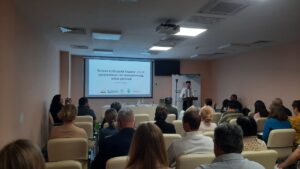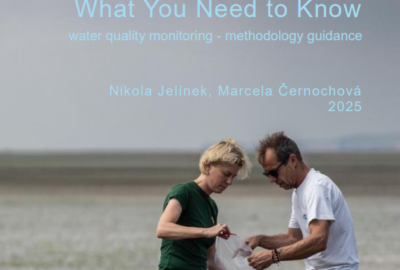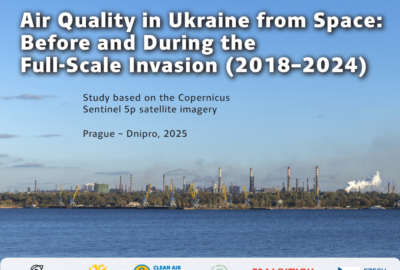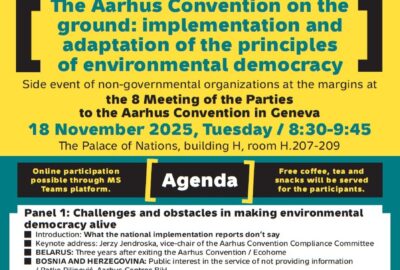At the beginning of May, a meeting of the «Clean Air for Ukraine» team and representatives of the united territorial communities (OTGs) of the Dnipropetrovsk region took place in Slobozhanske. Over 30 community leaders and representatives from the region attended the event in person.
During the meeting, the «Clean Air for Ukraine» team presented the new project «Green Reconstruction of Ukraine: Sustainable Recovery of War-Affected Regions». The event discussed the key aspects of the project, specifically how to support communities in their post-war recovery, focusing on their specific needs and environmental risks.
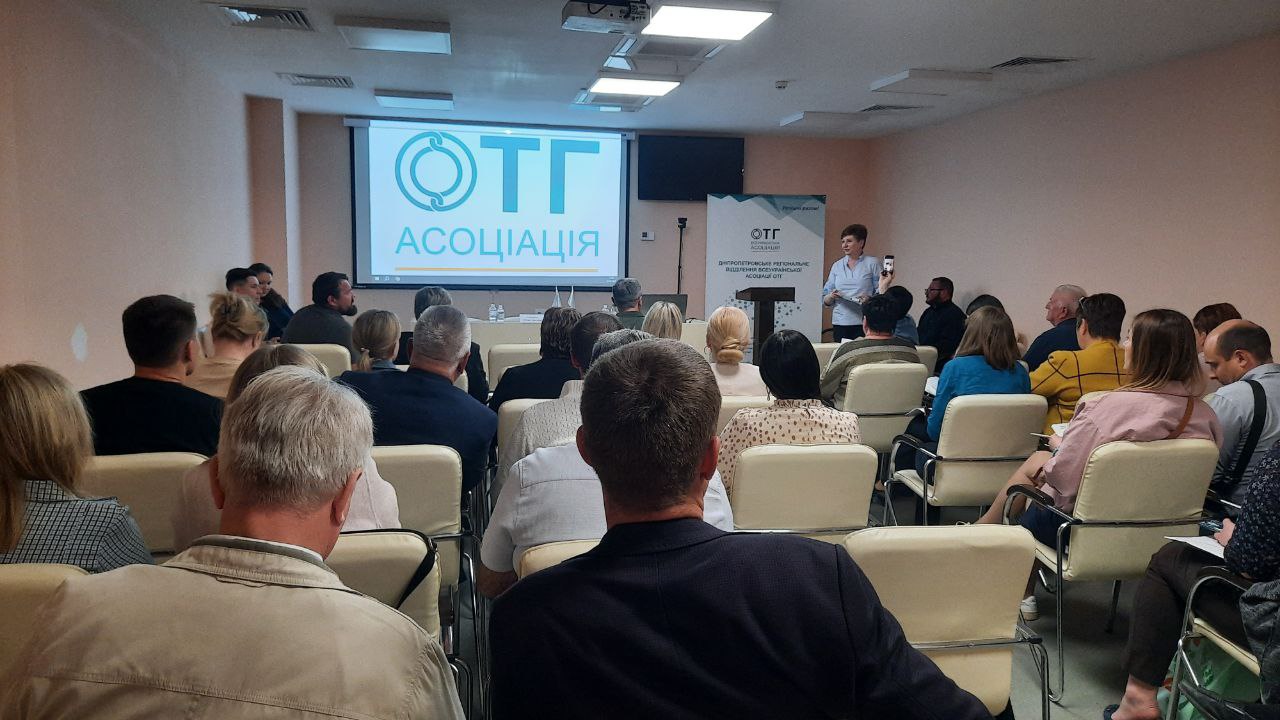
Why Talk About Reconstruction During the War
«We understand that the war is still ongoing, and threat military and security issues are the priority, and that victory is a necessary precondition for reconstruction itself. However, even now, during the active phase of the war, it is necessary not only to respond to immediate needs but also to have a strategy for the future», — began Marcela Cernochova, the project coordinator for «Clean Air for Ukraine», at the meeting.
«Talking about reconstruction even in the most challenging periods of war is an acknowledgment that despite the current difficulties, we are planning and building the future of Ukraine. Reconstruction means not only restoring infrastructure but also considering environmental aspects, ensuring sustainable development for future generations» — adds Marcela.
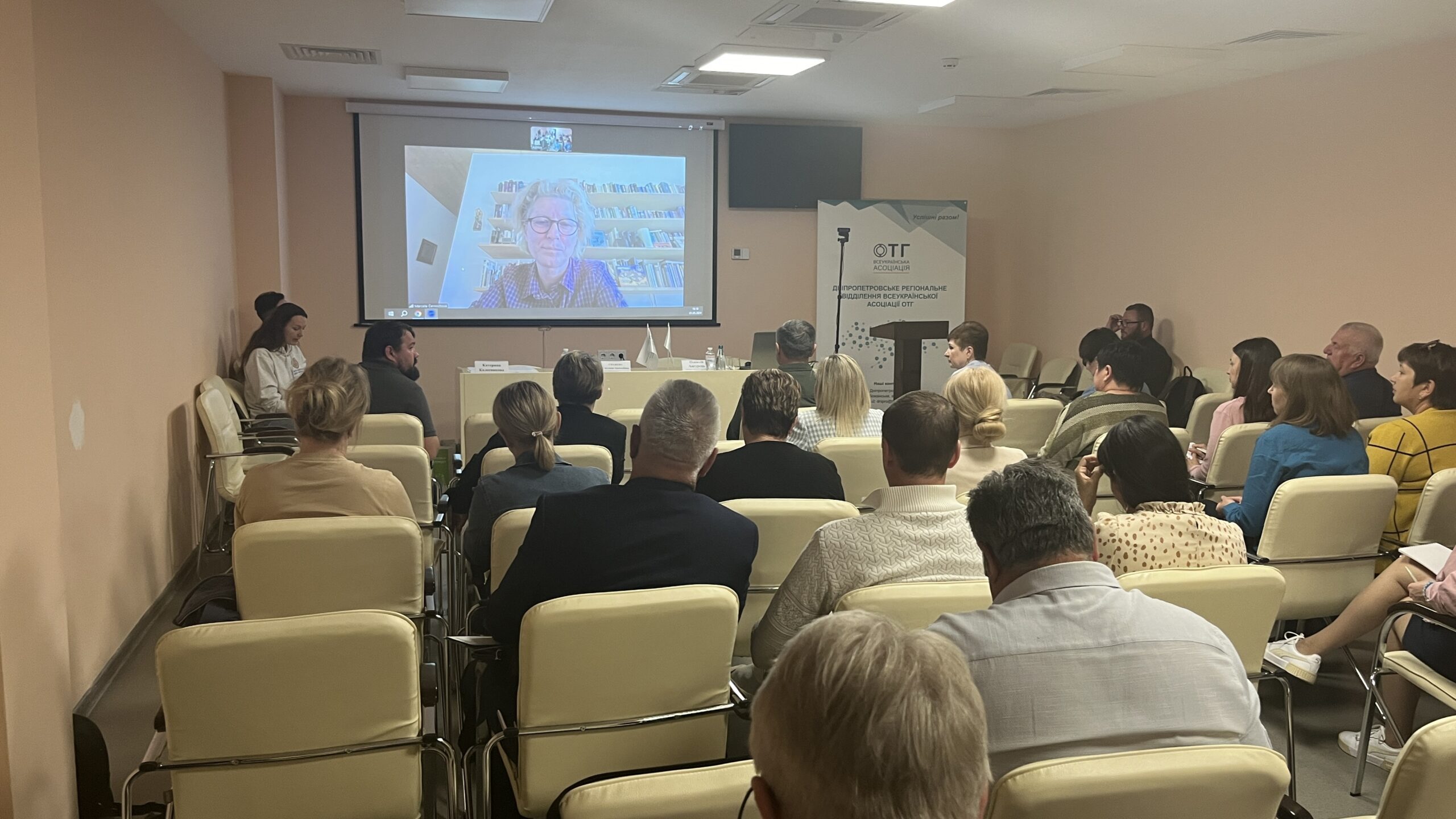
The Importance of Working Locally
Ecology expert Oleksiy Angurets added that the main goal is to help communities during the preparation phase now and in the recovery phase as soon as the situation allows. He emphasized that focusing on community work is crucial at this time because many communities in the southern and eastern regions have been directly or indirectly affected by the war. Oleksii also noted that not many international organizations work directly at the local community level and come to the regions:
«Usually, most assistance, attention, and certain projects are concentrated in the capital and administrative centers. Therefore, we decided to focus directly on small communities and work at the level of local organizations and regions. We plan to identify and understand the initial critical needs of the communities and help with both their identification and their systematic analysis. This will enable us to find the necessary funds to address these problems. Certainly, our program will not be able to financially cover all the needs, but we can systematize and prepare plans and materials for funding applications to large programs or international financial institutions, even at the UN level, for example».
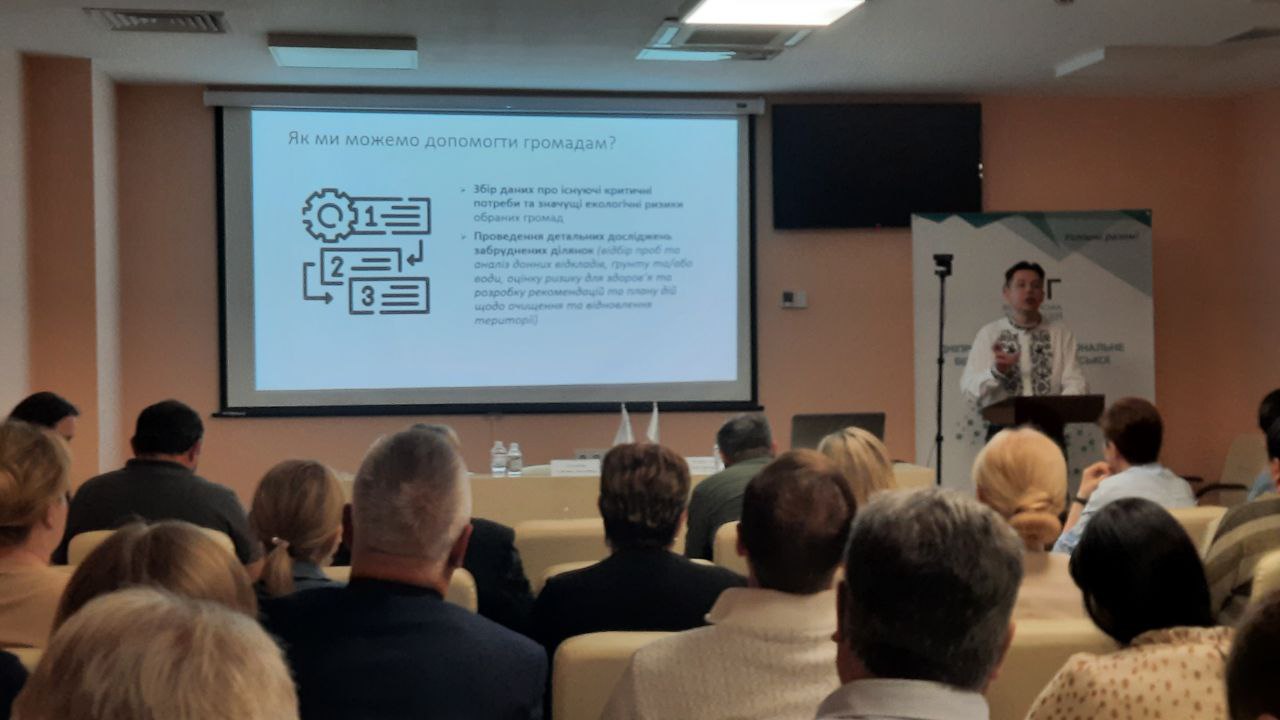
How We Will Help Communities
As part of the new project «Green Reconstruction of Ukraine: Sustainable Recovery of War-Affected Regions», the team will conduct an inventory that includes assessing environmental damage from the war, as well as pollution and burdens associated with past and present activities. Thanks to the work of Ukrainian and foreign experts, local development plans and strategies will be created to address specific environmental issues of particular communities. One of the key goals of the project is to assess environmental risks for each affected community. This will help understand which environmental problems are most urgent for specific areas and what steps need to be taken to address them. The support of the creation of strategic local development plans is a step toward sustainable recovery, which will ensure not only restoration but also the sustainable development of communities.
«The focus of our project is on the use of environmentally friendly solutions in the reconstruction process. This is critically important as it will help address specific environmental problems and preserve the natural environment for future generations», — said Oleksii Angurets.
Gathering Data from Communities
Kateryna Kolesnikova, coordinator of activities and specialist in engaging target groups of the project, mentioned that one of the tools for working with communities is questionnaires: one for local government bodies and another for community residents.
«Questionnaires will help gather data on the critical needs and significant environmental risks and challenges in the communities. This is the first step. Based on this data, we will develop implemented recovery strategies aimed at improving the quality of life and environmental sustainability of communities after the war», — she added.
The second stage involves field surveys, on-site visits to communities and direct communication with community representatives, local residents, and inspection of key areas of concern related to environmental risks and challenges.
During the presentation, project coordinator Marcela Cernochova stated:
«This will help us understand which environmental problems are most relevant to specific areas and what steps need to be taken to address them. The support of creation of strategic local development plans is a step towards sustainable recovery, ensuring not only restoration but also the sustainable development of communities».
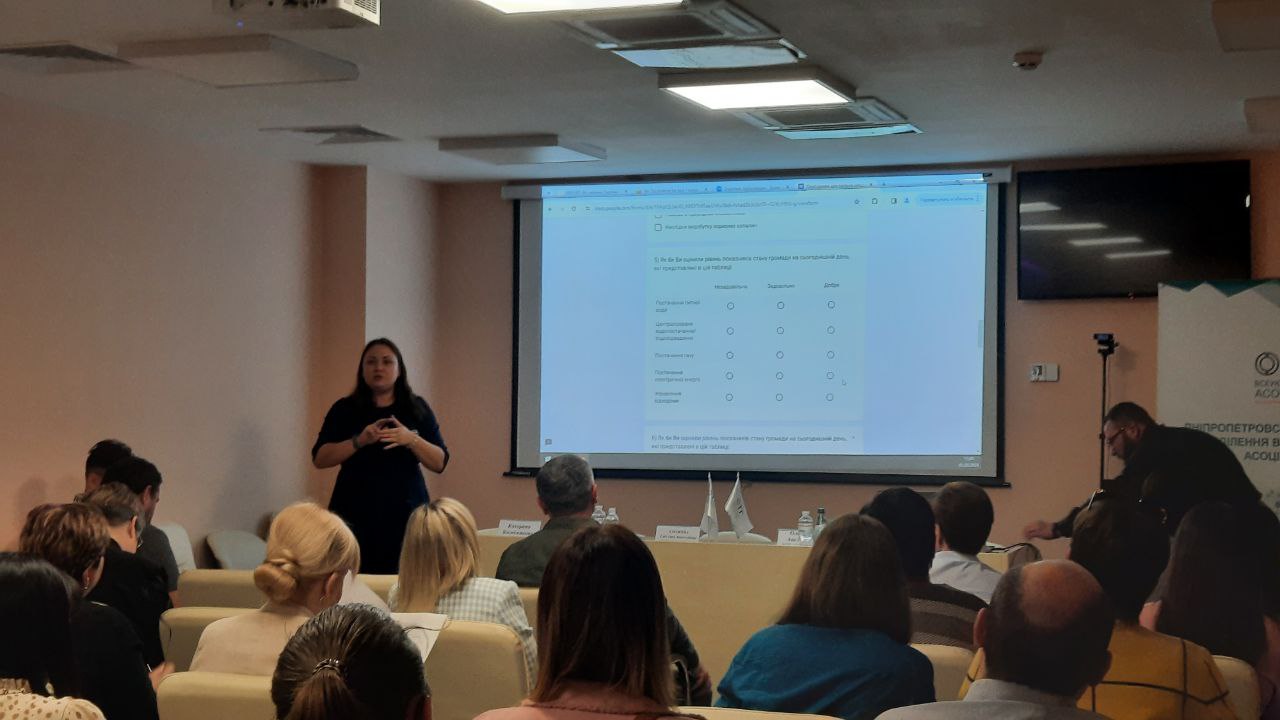
Further Steps and Collaboration
The next steps include the assistance in the preparation for the reconstruction of regions affected by the war. Based on the obtained data, individualized plans for remediation of the environmental threats will be developed for each community. This will involve detailed studies of contaminated areas, including sampling and analysis of sediments, soil, and/or water, health risk assessments, and the development of recommendations and action plans for cleaning and restoring these areas. The project will engage international resources and partners, including donors and experts.
Environmental expert Oleksiy Angurets emphasized the additional value of the project:
«The results of our environmental condition studies and their detailed descriptions can be used by municipalities to prepare claims for damage compensation. Moreover, our reports, created in collaboration with independent international experts, might help in the future discussions on international funding for community development».
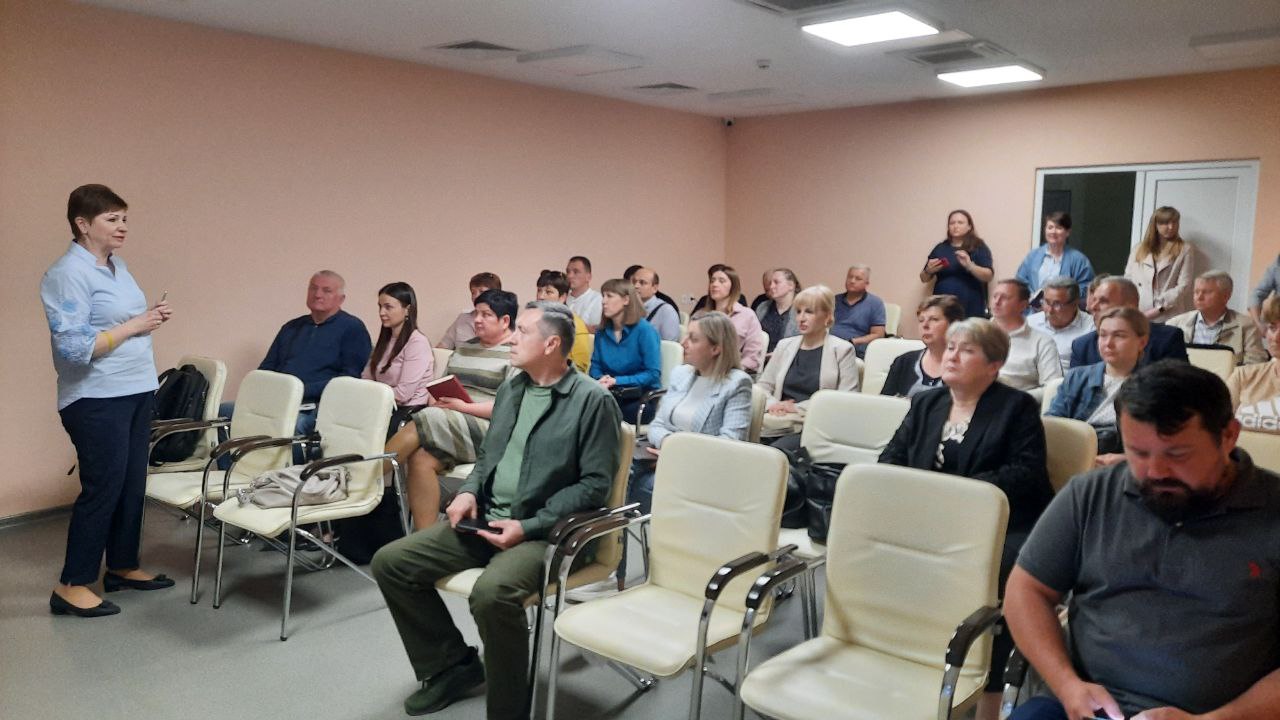
Discussion on Environmental Risk Descriptions
Svitlana Spazheva, Head of the Dnipropetrovsk Regional Branch of the All-Ukrainian Association of Territorial Communities, stressed the importance of joint efforts:
«To attract funds and have prospects for the community, we need to start developing such a reconstruction plan now. Your assistance is invaluable and will be beneficial to everyone present. Regarding alternative energy sources, this is definitely our path to green and sustainable community recovery in Dnipropetrovsk. Focusing on environmentally friendly solutions in the recovery process is critically important. It will not only address specific environmental problems but also help preserve the natural environment for future generations».
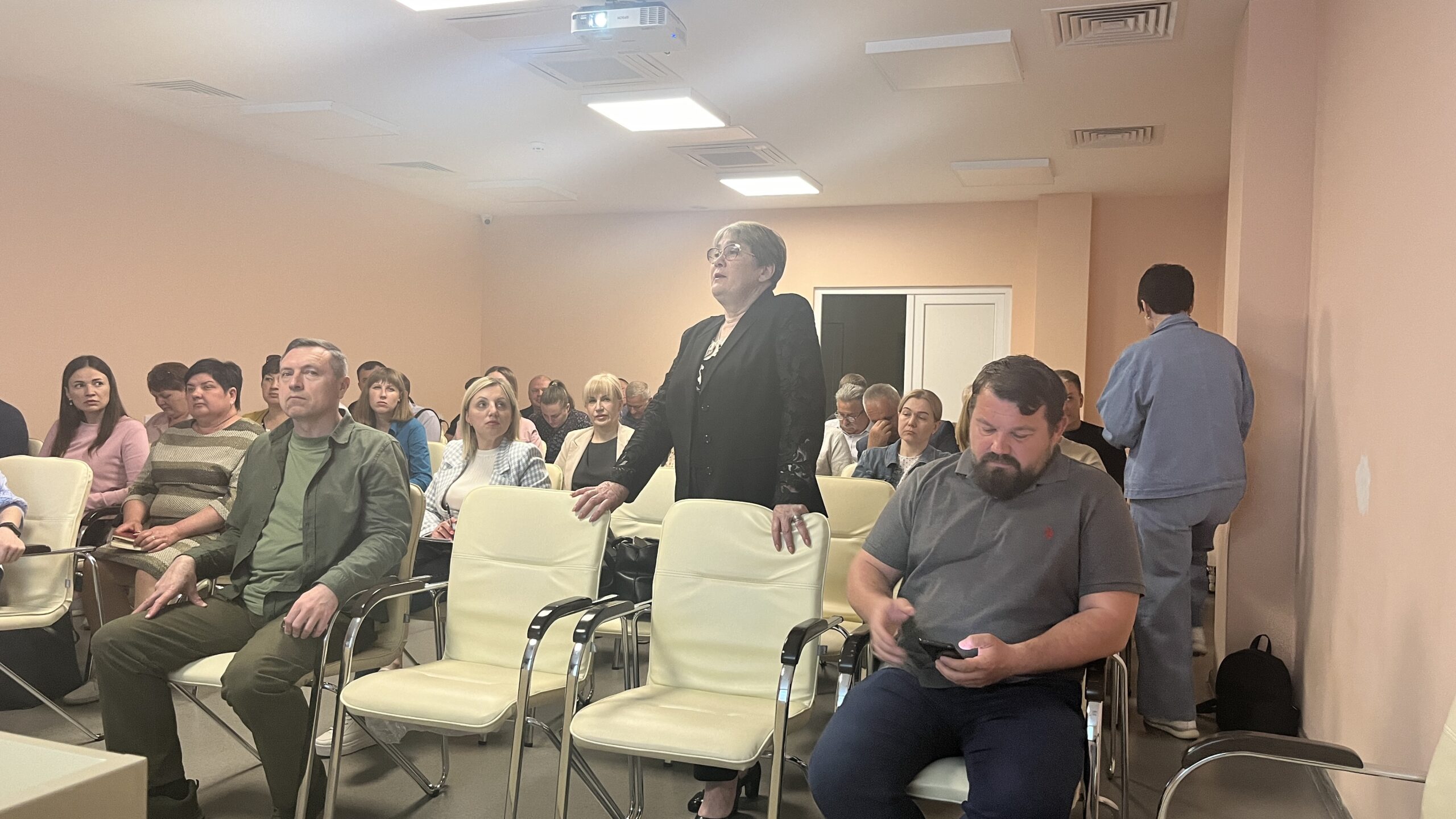
At the same time, the head of the Hrechaniopodivska community, Halyna Usyk, expressed concerns:
«Pollution from large enterprises is a serious problem. Residents have documented black clouds from these enterprises that continue to pollute the air, despite assurances from company representatives to the contrary».
In response, environmental and sustainable development expert Oleksiy Angurets stated:
«Our team has extensive experience working with enterprises and air pollution. It is important to inform company representatives about the problem, continue the communication, so that we can collectively influence the process of solving it and control measures to eliminate current pollution. Without cooperation, achieving results is impossible».
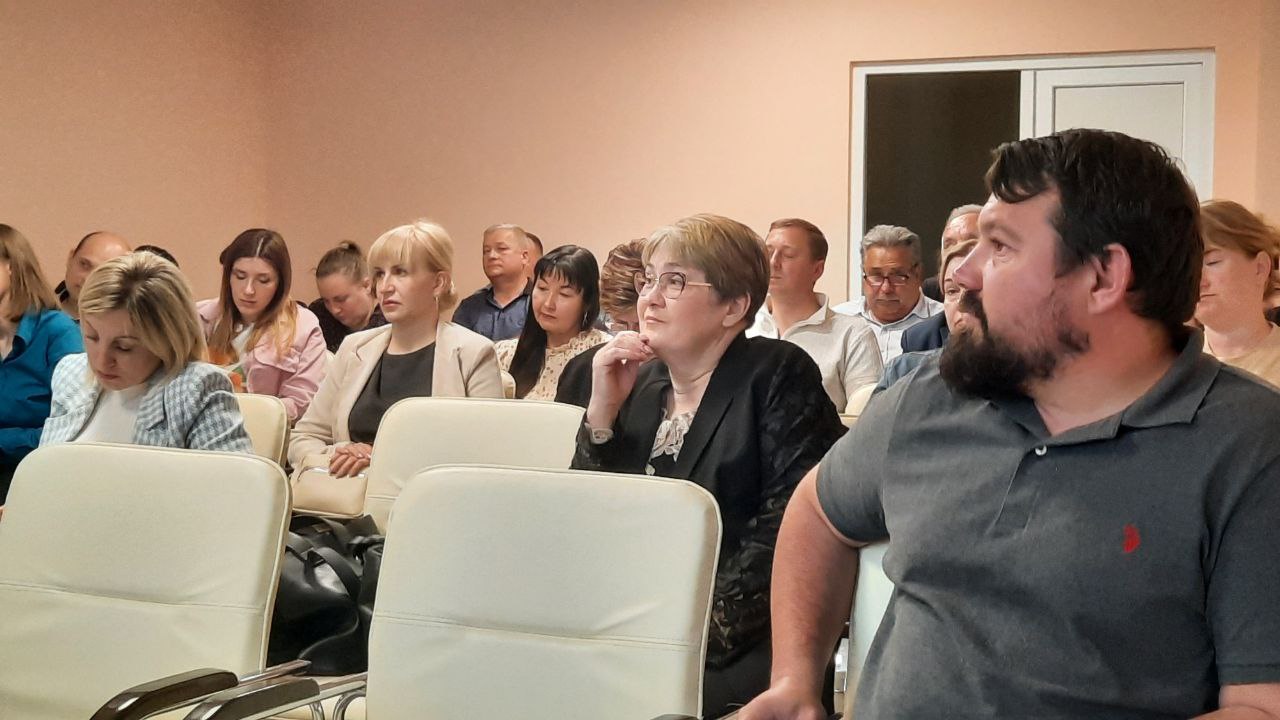
The meeting of the Clean Air for Ukraine team with representatives of the territorial communities of Dnipropetrovsk in Slobozhanske was a significant step towards the recovery of the regions affected by the war. The presentation of the new “Green Reconstruction” project demonstrates an understanding that post-war recovery must be a profound and comprehensive process that goes beyond merely restoring infrastructure and includes environmental aspects.




